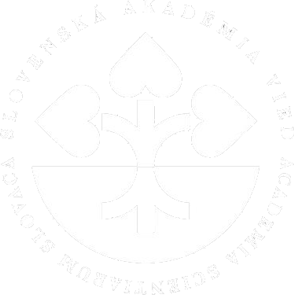This website uses cookies so that we can provide you with the best user experience possible. Cookie information is stored in your browser and performs functions such as recognising you when you return to our website and helping our team to understand which sections of the website you find most interesting and useful.
Hygienists and scientists have taken mosquitoes under scrutiny

The Public Health Authorities of the Slovak Republic and the Biomedical Research Center of the Slovak Academy of Sciences, (BMC SAS) are working together on a project to monitor the presence of West Nile virus and Usutu virus in the bodies of local mosquitoes.
Epidemiologists and scientists are thus gaining important data and insight into the extent to which mosquitoes in Slovakia are able to transmit these exotic viruses to humans.
“This is the first time that nationwide monitoring of these viruses has been carried out in Slovakia. It was made possible by a new trapping method that saves both time and money. We capture mosquitoes’ saliva on special cards,” says Dr Viktória Čabanová from the Institute of Virology of the BMC SAS, head of the project, which is funded by the Agency for Research and Development Support (APVV).
“Monitoring the presence of West Nile and Usutu viruses in mosquitoes is important to improve the diagnosis of diseases caused by these viruses. Through this monitoring, regional public health authorities will learn whether mosquitoes infected with these viruses are present in their territory and can transmit them to humans. Consequently, they can warn doctors to think about these diseases when diagnosing them,” explained Dr Tatiana Červeňová, Chief Hygienist of the Slovak Republic.
The monitoring has already had its first results. “During the first weeks, the Usutu virus has been detected in Košice, Dunajská Streda, Levice and Svidník. However, there is no need to panic. Most infections are asymptomatic and more serious forms occur only in a small percentage of those infected,” said Dr. Viktória Čabanová from the Institute of Virology of the BMC SAS.
Currently, the occurrence of mosquito-borne diseases is rare in our area. This statement is also true in the case of the tiger mosquito, which is capable of transmitting exotic diseases and its occurrence in the Slovak Republic has been confirmed by the BMC SAS.
“Monitoring of infectious diseases transmitted by mosquitoes in our territory is important and should not be underestimated. The change in climatic conditions favours the spread of invasive mosquito species with the ability to transmit exotic diseases even in countries with milder climates. The epidemiological situation may therefore change in the future and we must be prepared to catch these diseases in time,” emphasised Dr Tatiana Červeňová.
Scientists and hygienists, public health officials have deployed mosquito traps
Thirty-six regional public health offices have deployed so-called mosquito traps on their premises, which were constructed at the BMC SAS, in the period from June to October (this applies to the years 2024 and 2025).
The traps contain honey-soaked cards that attract pregnant female mosquitoes, which have already sucked blood and are more likely to be infected. They leave nucleic acids (DNA, RNA) in them.
The traps are operated by public health officials once a week and samples are sent to the Virological Institute of the BMC SAS, which detects the presence of West Nile and Usutu viruses.
The Institute of Virology of the BMC SAV informs the RÚVZ and the National Transfusion Service of the results within two weeks.
Cases of West Nile fever
In the Slovak Republic, three cases of West Nile fever have been laboratory-confirmed so far (2019, 2022, 2024) in the laboratories of the Public Health Office of the Slovak Republic. In one case transmission was confirmed on the territory of the Slovak Republic, in another case transmission on the territory of the Slovak Republic was assessed as probable and in one case importation from abroad was confirmed.
West Nile fever is caused by West Nile virus. It is an acute, influenza-like febrile illness. It is most commonly transmitted by the Culex mosquito, which ingests infected blood from birds that are reservoirs of the virus.
A person becomes infected after being bitten by a mosquito. The incubation time is two to 15 days. Approximately 80 % of human infections are asymptomatic. If symptoms appear, they manifest as a mild flu-like illness. Severe forms of the disease, such as meningitis, occur mainly in the elderly, the immunocompromised or in persons with associated diseases. Less than 1 % of infected persons may develop nervous system damage.
House mosquitoes of the genus Culex are also the main vector of Usutu virus (USV) in Europe. The incubation period is thought to be 3-12 days after a mosquito bite. After the incubation period, the patient may develop the first symptoms: mild fever, sometimes associated with rash and jaundice. In most cases, USV infection is asymptomatic or associated with mild symptoms. In immunocompromised and elderly patients, inflammation of the brain or meninges may rarely occur.
Text: BMC SAS, UVZ SR, RÚVZ SR
Photo: BMC SAS







